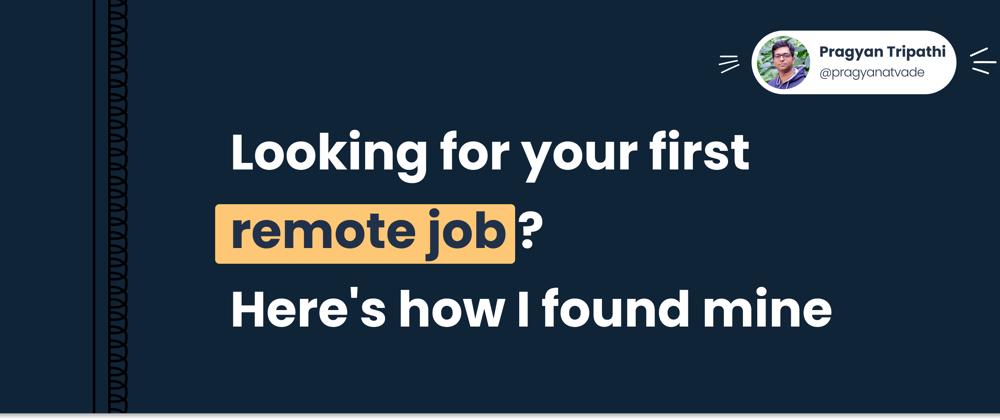Before Covid, it took me 1.5 years to land my first remote job.
Here are the strategies that I used to land my first remote job without getting lucky.
Read along!
In 2018, I was fed up after working in two failed startups back to back. They asked too much of me both physically and mentally without giving much in return. I realised that in Indian startup ecosystem, there is lot of rush but no speed.
So I ventured onto getting a remote job and take back control of my own time and space. Little did I know that being in an Indian Timezone will haunt me and make things harder AF.
Find Freelance Gig:
Along with a full-time job, I registered myself in all the freelancing sites I could find:
- Upwork
- Toptal
- Freelancer
- Fiverr
- Gigster
- 6nomads
I started sending proposals for anything I think I could do quickly. It took me 3 months of constantly sending proposals to get a single reply. I hopped on the call with the client and closed the deal.
In retrospect, the only reason he agreed to give me the project was that I had solved the exact problem he was trying to solve. I explained to him the intricate details of the problem and ensured him I am the best person to solve it for him.
The freelancing gig had a fallout within 3 months, once he found someone who was willing to do it for USD 10 per hour instead of the USD 3000 per month that I was charging. The client abruptly removed my access and didn't clear my final invoice.
Thankfully I still had my full-time job to fall back on, so it didn't affect me financially, but I was hooked. I loved the control I had over the time and space I was doing for the client.
Get a full-time remote job:
Till this point, I considered myself an expert in NodeJS and database management. Scars from scaling a startup to handling millions of users tend to do that. So I started applying as a NodeJS expert.
I applied for all the NodeJS related jobs in all remote job portals:
-remote.io
-weworkremotely.com
-stackoverflow.com
-angel.co
-linkedin.com
-nodesk.com
-flexjobs.com
-remotive.com
-remoteok.com
I used to write a custom cover letter and make modifications to the resume to highlight how I am great for the company. I kept doing it for about almost a year. I had sent 1126 emails, but nothing.
Absolutely nothing.
There wasn't even a single reply that would give me an opportunity to even interview. So I sought feedback on my resume and emails. All the feedback was - it is good, keep doing what you are doing. Duh!
LinkedIn has a feature that tells, how many people have applied for the particular job. I noticed, the number of people applying for NodeJS is significantly larger than number of people applying for DevOps.
Having worked in a startup has enabled me to work in all layers of the stack. So I knew I can manage infrastructure as well. I changed my cover letter and resume accordingly and started selling myself as a DevOps expert.
Within 2 weeks I had an interview call for 6 months remote contract. I joined the company at 2 times more salary than I was earning at my existing full-time job. Based on the performance, the 6 months contract got extended for 2 years.
Getting a job is the game of demand and supply.
-Research the market and figure where is the higher demand but lower supply.
-Be flexible, If I had been adamant on getting NodeJS job, I would have never landed any remote job.
-Perservere & do the grind.
Thanks for reading this.
If you have an idea and want to build your product around it, schedule a call with me.
If you want to learn more in DevOps and Backend space, follow me.
If you want to connect, reach out to me on Twitter and LinkedIn.




















